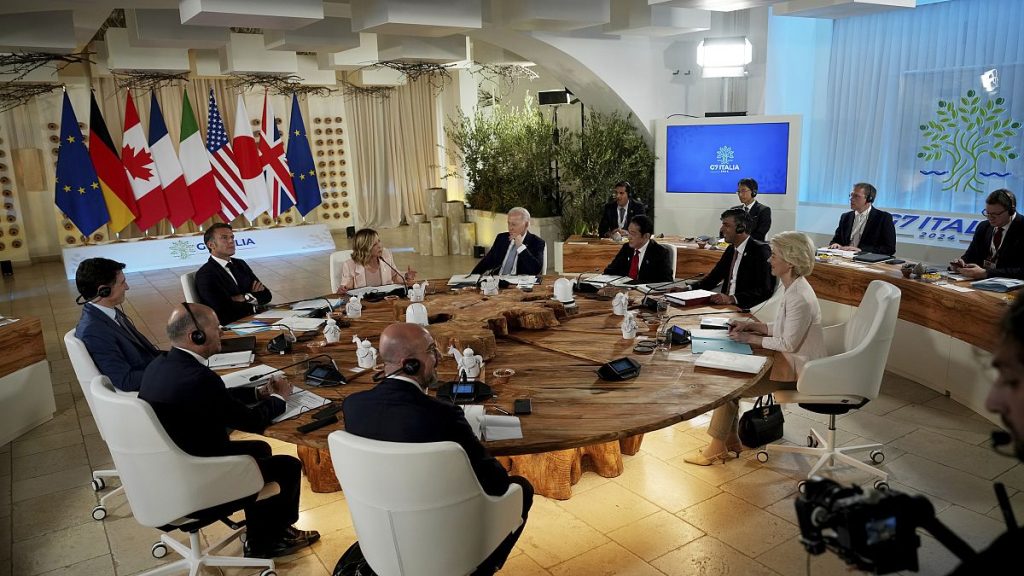Summarize this content to 2000 words in 6 paragraphs in Arabic
The G7 summit is focused on addressing global conflicts, the implications of artificial intelligence, and Italy’s longstanding concerns regarding uncontrolled migration from Africa to Europe.
ADVERTISEMENTLeaders of the G7 nations have agreed to support a €46 billion US loan to help Ukraine in its war against Russia.Funding for the loan would come from interest earned on profits from Russia’s frozen central bank assets.Details of the deal were still being finalised as G7 leaders gathered for a summit in Italy, but the funds could reach Kyiv before the end of the year. That’s according to a French official who confirmed the agreement on Wednesday ahead of a formal announcement.Most of the money would be provided in the form of a loan from the US government that would be backed by windfall profits generated from approximately €278 billion in immobilised Russian assets.The vast majority of the money is being held in European Union nations.How could the money be used?Beyond the costs of the war, the needs are substantial. The World Bank’s latest assessment of Ukraine, released in February, estimates that costs for reconstruction and recovery of the nation stand at €450 billion over the next 10 years.US National Security Adviser Jake Sullivan said the goal is “to provide the necessary resources to Ukraine now for its economic energy and other needs so that it’s capable of having the resilience necessary to withstand Russia’s continuing aggression.”But the US has said it will not commit troops directly to Ukraine’s defence over fears it would be drawn into direct, and potentially nuclear, conflict with Russia.Why not give Ukraine the frozen assets?For more than a year, officials from multiple countries have debated the legality of confiscating the money and sending it to Ukraine.The US and its allies immediately froze whatever Russian central bank assets they had access to when Moscow invaded Ukraine in 2022.The assets are immobilised and can’t be accessed by Moscow — but they still belong to Russia.And although a political decision by the leaders has been made, the technical and legal details of the agreement still need to be worked out. If Russian assets are unfrozen in the future, the windfall profits would no longer be available to repay the loan, resulting in a need for a burden-sharing arrangement with other countries.Max Bergmann, director of the Europe, Russia and Eurasia Program at the Centre for Strategic and International Studies, said last week that there were worries among European finance ministers that their countries “will be left holding the bag if Ukraine defaults.”The G7 includes Canada, France, Germany, Italy, Japan, the United Kingdom and the United States.
rewrite this title in Arabic G7 leaders back US-Ukraine bilateral security agreement in Italy
مقالات ذات صلة
مال واعمال
مواضيع رائجة
النشرة البريدية
اشترك للحصول على اخر الأخبار لحظة بلحظة الى بريدك الإلكتروني.
© 2025 جلوب تايم لاين. جميع الحقوق محفوظة.


